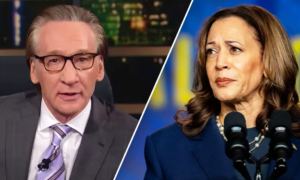Recent revelations about a major Democratic fundraiser have raised serious concerns, particularly regarding the transparency of political donations within the party.
According to reports, a key Democratic fundraiser, closely tied to President Joe Biden and former President Barack Obama, owes millions in unpaid taxes while continuing to make sizable contributions to Vice President Kamala Harris’s campaign.
This individual, a well-known figure in Democratic fundraising circles, has been instrumental in helping secure financial backing for candidates like Biden and Harris. Despite his high-profile status, records show that he has accumulated significant tax debts, prompting critics to question the accountability of those at the highest levels of the party.
Henry Muñoz, the former finance chair of the Democratic National Committee (DNC), reportedly had a federal income tax lien of nearly $3.5 million filed against him last year. He also faced a business tax warrant in Texas for over $150,000, as uncovered by the New York Post.
Muñoz’s financial liabilities have sparked outrage, particularly since he has donated large sums to support Harris’s political ambitions. Critics argue that failing to meet tax obligations while financially backing public servants undermines his credibility and raises ethical concerns about the Democratic Party’s fundraising practices.
Muñoz has long been a key player in Democratic fundraising efforts, with former President Obama personally selecting him as a lead fundraiser. The connection between top political figures and individuals with questionable financial records has drawn intense scrutiny from both inside and outside the party.
Notably, in 2022, President Biden officiated Muñoz’s wedding to Kaia Ferari. That same year, Biden also hosted a fundraising event at Muñoz’s multimillion-dollar Park Avenue residence, pulling in $2 million for Democratic candidates.
The recent exposure of Muñoz’s tax troubles could have far-reaching consequences for both the Biden administration and the Democratic Party as they gear up for the next election cycle. As these financial issues come to light, some Democratic leaders have sought to distance themselves from Muñoz, stressing their commitment to transparency and ethical standards.
Nevertheless, the optics of accepting donations from fundraisers with serious financial discrepancies could alienate moderate voters, especially those already skeptical of the political elite. The issue underscores the growing calls for stronger campaign finance regulations and greater accountability from political figures.
As the 2024 election cycle approaches, how the Democrats handle this situation will likely have a significant impact on public opinion and voter turnout. In a time of growing polarization, maintaining ethical standards is critical for building and retaining trust with the electorate.



